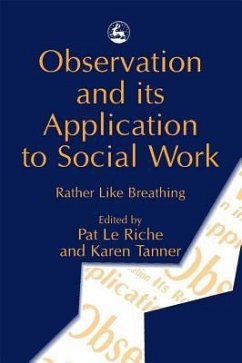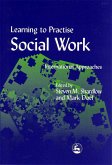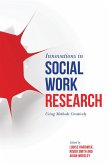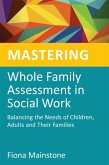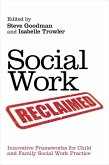Observation helps social workers and students to reflect upon situations before intervening. The Tavistock Model of Observation, which is informed by psychoanalytic ideas (especially those of Klein and Bion) is the starting point of this general book on the role of observation in social work. Karen Tanner and Pat Le Riche have brought together a range of contributions from practitioners and social work academics in order to discuss the application of ideas about observation to social work education and practice. While the Tavistock Model remains influential, the writers draw on material from a number of other disciplines, such as behavioural ethnography, psychology and critical social policy, on observation and social work. The central theme of the book is that of power relations. The authors focus on power in relation to the process of observation, and how observation can be used to counteract oppressive and dehumanising practices. Clearly and perceptively written, the book develops the debate on the purposes of observation and provides an overview of current practice. It will be of use to students and professionals alike.
Bitte wählen Sie Ihr Anliegen aus.
Rechnungen
Retourenschein anfordern
Bestellstatus
Storno

